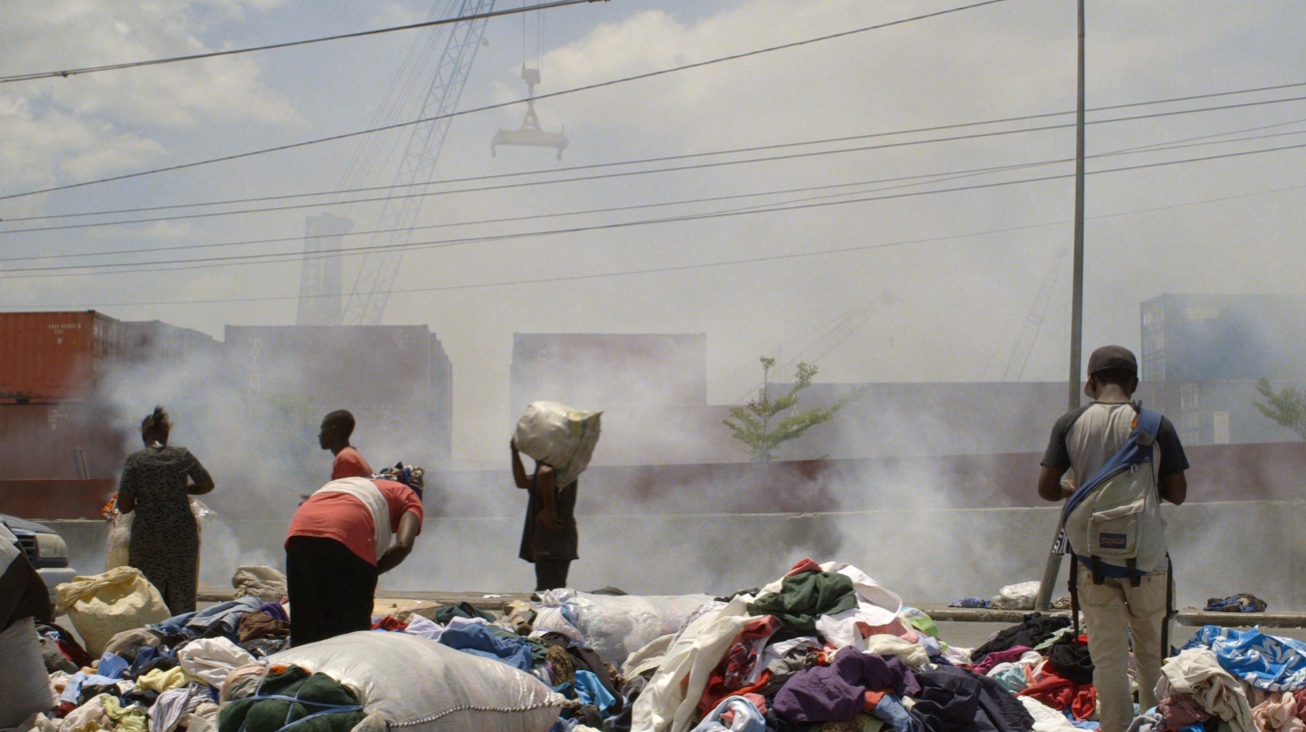Do you love a good, cheap fast fashion find? I used to, until I noticed my clothing constantly ripping or developing tiny holes within weeks of casual wear. I would toss items of clothing because the price to repair them was more than just getting another one. Have you ever experienced this?
Decades ago, North American companies shifted production offshore, where environmental regulations are little to nonexistent, and textile and garment workers earn meager wages. Clothing became massively cheaper, allowing for fresh styles, with the average shopper purchasing clothing every five days. Yearly, we are tossing 11.9 million tons of clothing, more than a 750 percent increase since 1960. Suddenly, like our food, we are experiencing Ultra-fast fashion.
It really got me thinking, is it worth it? I came across a documentary called “The True Cost” and it opened my eyes to the truth of our ultra-fast, ultra-cheap fashion obsession. Did you know 97% of the manufacturing of our clothing is done by sweatshop workers?

In Bangladesh, for instance, the average laborer is female and makes three dollars per day in unsafe working conditions. Separated from their families, these laborers work endless hours with no breaks, no windows and no air-conditioning. They are also abused verbally and physically for speaking up. One tragedy was the 2013 collapse of a building in Dhaka, Bangladesh, killing over 1,000 workers. In Dhaka, a child laborer works for 10 hours a day to earn the equivalent of one U.S. dollar.
Knowing this, as I looked down at my $4.00 T-shirt, I felt dirty.
Did you know the fashion industry is the second-largest polluter in the world, second only to oil? The industry’s pollution level is extreme, producing between two and eight percent of global carbon emissions. A 2021 report from the World Economic Forum estimates that the fashion industry generates four percent of global greenhouse gas emissions, considering materials, manufacturing and freight operations. Textile dyeing is also the second-largest polluter of water globally. From South and Central America, Asia, Africa, China and India, clothing toxins and hazardous raw chemicals are dumped into rivers and surrounding areas. The manufacturing of polyester and other synthetic fabrics requires large amounts of crude oil, releasing emissions including volatile organic compounds, particulate matter and acid gases such as hydrogen chloride into our environment. These ecological narcotics, to include pesticides and herbicides sprayed on raw materials, cause illnesses such as cancer in the workers and consumers alike.
These chemicals also affect aquatic life, including the feminizing of fish. In turn, the U.S. is importing the toxic seafood heavily laden with poisonous chemicals and endocrine disruptors we are feeding to our families. These chemicals have been identified to cause infertility and health problems – including cancer.
Are you loving the current trendy distressed jeans look? In Guangdong Province, China, workers scrub, spray and tear jeans around the clock to create the distressed look. The blue dust from the jeans is a heavy irritant to the lungs, semi-permanently staining their skin.
According to an Environmental Science and Technology study, numerous synthetic microfibers are shed during conventional clothes-washing. When washing a jacket, for instance, an average of 1,174 milligrams of microfibers are released from the washing machine. These microfibers then travel to local wastewater treatment plants, where up to 40% of them can enter rivers, lakes and oceans. These microfibers are also found in the local environment including farmland. Textiles are estimated to account for approximately nine percent of annual microplastic found in the ocean.
Do you donate your clothing to charities? What cannot be recycled is sold to developing countries. Overwhelmed landfills have led to clothes piling up on city streets and beaches, leading to contamination of rivers, streams and oceans.

Dead White Man’s Clothes, a multimedia research project exploring the secondhand clothing trade in Kantamanto Market in Accra, Ghana, filmed a decomposing textile dump which exploded from trapped methane gasses. It burned for months, spewing unknown amounts of contaminants.
Pay attention to the label. If it says “poly,” “polyester” or “vegan leather,” or if it is flimsy and see-through, it is not reusable. Avoid acid-washed and colored or bleached clothing. Instead, purchase plant-based fibers – organic cotton, linen, hemp, ramie – which have a low environmental impact. Animal-based fibers include alpaca, silk, responsible wool, responsible cashmere and responsible leather, which are sustainably produced with no animal cruelty. Semi-synthetic fibers have a low environmental impact and include Lyocell/Tencel® orange or pineapple fiber, coffee grounds, sustainable viscose and cupro. These materials can be recycled and upcycled.
Our voice is in our pocketbook. We need to take responsibility now. Remember when you couldn’t find organic food in your grocery store? We made it loud and clear the change we wanted to see happen. Now it’s time for us to force the fashion industry back to humane and proper standards. We only have one planet. We need to protect it, and this starts with you.
Keep up with all of Green Living’s original content online and on social media.






